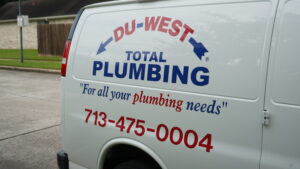What To Do if You Suspect a Gas Leak at Home
Walking into your home and catching a whiff of something that smells like rotten eggs is enough to make anyone stop in their tracks. That distinct, foul odor isn’t just unpleasant—it’s a warning sign that you might have a gas leak on your hands.
While it’s easy to panic, staying calm and knowing what to do can make all the difference. Let’s talk about what steps to take when you suspect a gas leak and how to keep your home and loved ones safe.
Why Does Gas Smell Like Rotten Eggs?
Natural gas, on its own, is completely odorless. To help keep us safe, gas companies add a chemical called mercaptan that creates that unmistakable sulfuric, rotten egg smell. Think of it as your nose’s best ally, it’s there to alert you before things get dangerous.
So, if you catch even a hint of that scent, don’t dismiss it. It’s not a weird cooking mishap or some forgotten trash it’s a signal to act. The faster you respond, the safer you’ll be.
Step 1: Stay Calm and Take Immediate Action
If you suspect a gas leak, don’t waste time second-guessing yourself.
Here’s what you should do right away:
- Avoid Ignition Sources: Turn off stoves, extinguish candles, and don’t use anything that could create a spark—including light switches, matches, or even your phone.
- Ventilate the Area: Open windows and doors to let fresh air circulate and help dissipate the gas.
- Evacuate Immediately: Get everyone out of the house, including pets. Don’t stop to investigate or try to find the source of the leak that’s a job for professionals.
Once you’re safely outside, move a good distance away from your home before using your phone to call for help.
Step 2: Call the Experts
From a safe location, contact your gas company’s emergency number to report the leak. Their teams are trained to handle these situations and can guide you on what to do next.
If you’re unsure of the number, 911 is also an option. Emergency services can coordinate with utility providers to ensure the situation is managed safely and effectively.
What About Gas Leak Detectors?
Let’s talk prevention. Gas leak detectors are an excellent investment for any home. These devices are designed to pick up on leaks before your nose does, giving you an early warning to act.
Where to Install Them: Place detectors near gas appliances, such as stoves, water heaters, and furnaces.
Regular Maintenance: Like smoke detectors, gas leak detectors need regular testing and occasional battery replacements to ensure they’re working properly.
While detectors are a great safety tool, they’re not a replacement for routine maintenance and inspections. Think of them as an extra layer of protection.
Signs of a Gas Leak Beyond the Smell
Sometimes, gas leaks aren’t immediately obvious, especially if the scent isn’t strong.
Here are other warning signs to watch for:
- Hissing or Whistling Sounds: If you hear these near a gas line, it could indicate escaping gas.
- Dead or Discolored Vegetation: Gas leaks can kill plants. Look for patches of dead grass or wilting plants near your gas lines.
- Bubbling in Water or Wet Areas: If bubbles appear in puddles or damp soil, a leak might be escaping underground.
- Unusual Appliance Behavior: Soot buildup or odd-colored flames on your gas appliances can also signal a problem.
Trust your senses. If something seems off, it’s better to be safe than sorry.
Health Risks of Gas Leaks
Gas leaks aren’t just a fire hazard, they can also seriously impact your health.
Prolonged exposure to natural gas can lead to symptoms like:
- Headaches
- Nausea
- Dizziness
- Fatigue
In severe cases, exposure can cause confusion, difficulty breathing, or even loss of consciousness. If you or anyone in your household experiences these symptoms, get to fresh air immediately and seek medical attention.
Routine Maintenance: The Key to Prevention
The best way to handle a gas leak is to prevent it from happening in the first place. Regular maintenance of your gas appliances and lines is crucial.
Professional Inspections: Schedule annual inspections by a qualified technician to check for weak connections, wear, or other issues.
Appliance Care: Ensure stoves, furnaces, and water heaters are in good working condition. Replace aging equipment before it becomes a problem.
A little effort upfront can save you from big headaches and potentially dangerous situations down the road.
Legal Responsibilities and Safety Regulations
As a homeowner, you’re responsible for ensuring your property complies with gas safety regulations. Regular checks aren’t just good practice—they’re often legally required.
Make sure you’re up to date on local gas safety codes and guidelines. If you’re a landlord, it’s especially important to maintain safe living conditions for your tenants, including annual safety checks.
What About Insurance?
Does your home insurance cover gas leaks? It’s worth finding out. Some policies include coverage for damage caused by gas leaks, while others may not. Review your policy and talk to your provider to make sure you’re covered. It’s one more way to protect yourself from the financial fallout of a leak.
Gas Safety is a Community Effort
Gas safety doesn’t stop at your property line. Raising awareness in your neighborhood can help everyone stay safe. Consider organizing a gas safety workshop or sharing resources with your community. The more people know how to handle a gas leak, the better off everyone will be.
FAQs About Gas Leaks
How do I know if I have a gas leak?
The rotten egg smell is the most obvious sign, but you might also hear hissing, see dead vegetation, or notice bubbling in water.
Can I try to find the leak myself?
Absolutely not. Leave that to the professionals. Your job is to get out safely and call for help.
How can I prevent gas leaks?
Install gas leak detectors, schedule regular maintenance, and stay alert to signs of trouble.
Final Thoughts
Gas leaks are no joke, but they don’t have to be a disaster if you’re prepared. Knowing the signs, acting quickly, and prioritizing regular maintenance can keep your home safe and your family healthy.
When in doubt, trust your instincts and get help. It’s always better to be cautious when it comes to something as important as your home’s safety. Stay vigilant, and you’ll have peace of mind knowing you’re ready for anything.

